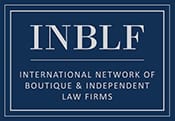I’d rather be wrong
February, 2017
Eric F. Greenberg Attorney-at-Law
With the arrival of a new presidential administration, we should share our predictions about what it will bring. You go first.
I used to work with a guy who was such a pessimist that he daydreamed of having a bumper sticker that read, “I’d Rather Be Wrong,” because he always expected the worst even as he hoped it wouldn’t occur. That guy came to mind recently, because as I look ahead to try to gauge the significance of the presidential election for the regulatory realm affecting packagers and other businesses, I am hopeful that what I think will happen won’t. Still, there might be a beacon of public sentiment peeking through all the noise that can help guide our predictions and our actions.
President-elect Trump’s Contract with the American Voter pledged “a requirement that for every new federal regulation, two existing regulations must be eliminated.” In at least one speech, he also said he would repeal 70-80% of federal regulations.
Late in the campaign, Trump issued some details about his plans for reform of regulations, saying he would ask “all Department heads to submit a list of every wasteful and unnecessary regulation which kills jobs, and which does not improve public safety, and eliminate them,” and thoroughly review all agencies and “decrease the size of our already bloated government.” These latter ideas are hardly new. They were good goals when Al Gore implemented similar steps as vice president in the 1990s.
Trump did sometimes mention specific topic areas, saying there were a number of environmental regulations he would eliminate, and at one point he said there was too much food safety regulation. But his broad strokes are unrealistic. A 2-for-1 sale? Really? Eliminate 70% of regulations, with no mention of what the regulations are for? Doesn’t the subject matter and purpose of a regulation matter at all? And how do you count “regulations” if you’re going to cut them-by section number, or by the topic they address? Trump’s Contract lists this regulatory measure under a heading aimed at “cleaning up corruption and special interest collusion in Washington, D.C.,” which defames and stereotypes all regulations as corrupt and ill-motivated.
Perhaps the wise approach here is to try to interpret not what he was saying but what voters were saying. My best theory, and hope, is that voters were not persuaded by the broad strokes of Trump’s utterances but rather by their own experiences with the burden of regulations of all kinds. I suspect that those who voted for him were feeling overwhelmed by regulatory requirements. They threw up their hands, proclaimed it all too much, and asked for relief.
We should listen to the messages the public is sending, and from the public policy and regulatory point of view, this could be a vote indicating that regulators have just made life too complicated and burdensome. It’s hard to argue that compliance with modern regulatory requirements isn’t complex, time-consuming, and expensive, but ideally each requirement has a useful and important purpose that the regulation advances. Maybe they do, but for too many people, there just were too many of them, they made life too hard to live, and they want fewer of them, and the substance of the rules is an afterthought. That’s a dramatic sentiment that is shared by perhaps more of the public than previously realized, and it deserves some attention.
Still, it’s difficult to see what the future holds. For one thing, it’s not clear what the President-elect’s goals are. Is it what he promised to do, however unrealistic, or what you think he really will do? For example, are you really counting on the 2-for-1 deal or the 70-80% of regulations to be eliminated, or is it just that the government will take a closer look and cut the job-killers that don’t protect the public? And are you expecting Trump to forcibly remove 11 million immigrants as he pledged during his campaign, or do you just want the immigration process tightened?
For another thing, even if the goals were clear, the new president-elect has more than the usual politician’s tendency to say false things. Politicians have long specialized in being misleading, rarely actually lying. He appears to have a big appetite for both, and, as his leadership of the Obama “birther” movement showed, a taste for adopting whatever position gains him support, regardless of the facts. I do not think he will keep his promises to bring back manufacturing jobs, nor do I think he can deliver on his promise to not be beholden to special interests.
Further, any rational person has to wonder what it means that Trump has zero experience in running government or any part of it. Say what you will about bureaucrats and regulators overdoing it now and then, but there is some measure of knowledge and experience involved in effectively operating a government, and as refreshing as a new approach can often be, on balance I don’t think it helps to utterly lack those.
Finally, it’s troubling that he felt it necessary to tear down so many of our society’s institutions in order to garner support. He asked us to have disdain for all existing politicians and regulators, his opponent, newspaper journalists, TV networks, immigrants, and anyone who doesn’t like him, as a condition of supporting his presidency. Trust only me, was his message. That’s not a formula for restoring confidence in government and institutions.
If he successfully identifies and eliminates regulations that are widely agreed to be burdensome and not useful, I will congratulate him. But I suspect there will be lots of controversy about the value of and need for many of the rules he wants to cut.
I have a feeling that when it comes to the regulatory realm affecting packagers and other businesses, there will be unpredictability, controversy, and confusion, not smooth sailing, over the next four years. I’d rather be wrong. PW
Eric Greenberg can be reached at [email protected], or visit his firm’s Web site at www.ericfgreenbergpc.com.
This article is informational only and is not intended as, and should not be considered to be, legal advice.
Be sure to check for any updated information about the topics discussed in this article.


